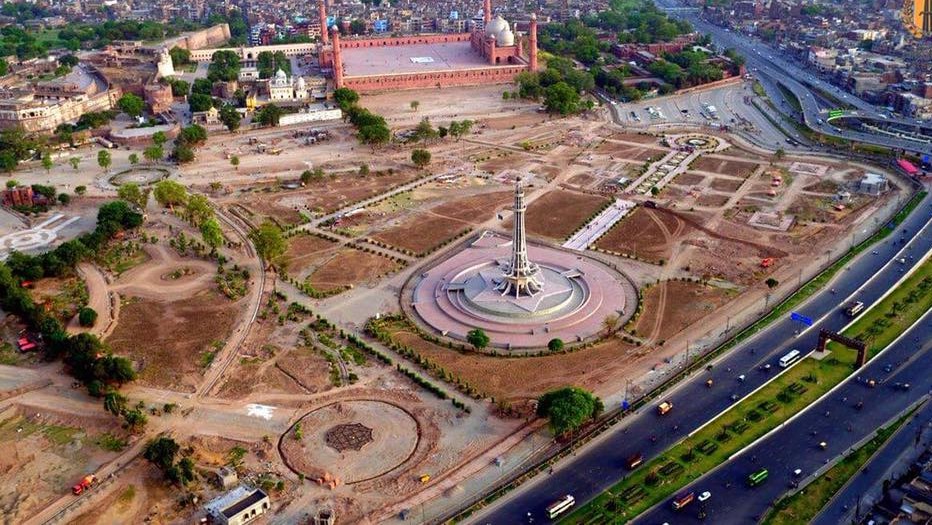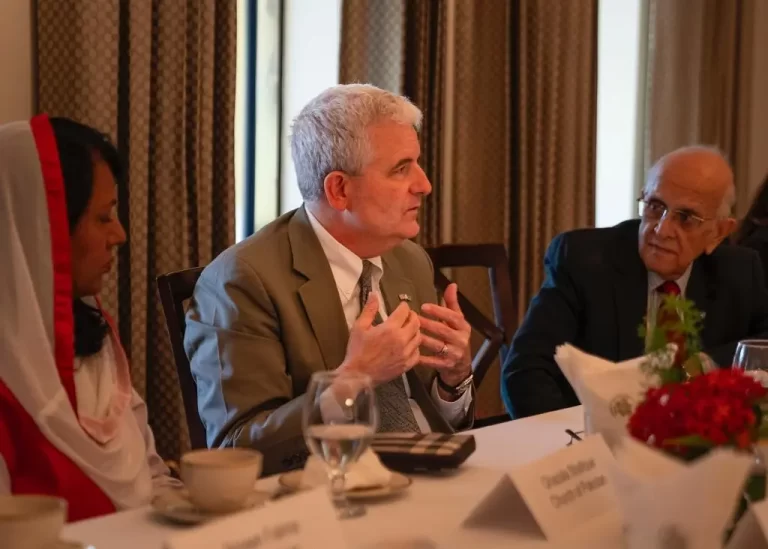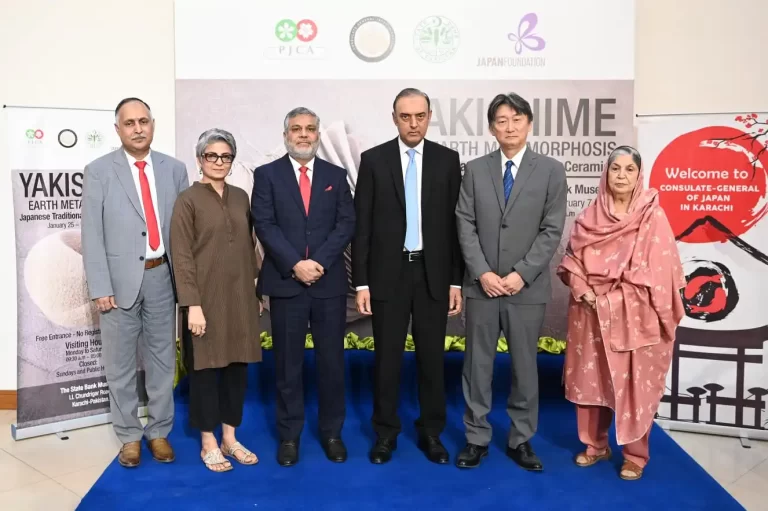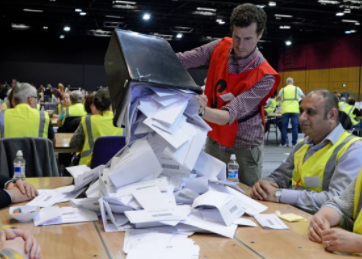Mismanagement in the Project of Greater Iqbal Park
By Azhan Saleem
Greater Iqbal Park, previously Minto Park, is an urban park in Lahore, Pakistan, on the fringes of the Walled City.
[disagreement – debate] Iqbal Park was the name of the park prior to the present restorations and extension. [1] The 125-acre park, which is known as the home of Minar-e-Pakistan, features a four-acre artificial lake with an 800-foot-long melodic fountain. A soft train, library, open-air gym, and food court are among the other attractions. The park also houses the graves of Allama Iqbal and Hafeez Jalandhari. [2]
The renowned and significant Minar-e-Pakistan is located in Greater Iqbal Park, which is surrounded by the magnificent Lahore Fort. Iqbal Park was formerly called Minto Park after the 9th Governor-General of India, Lord Minto Gilbert Elliot.
Several All India Muslim League meetings were held in the park, which ultimately led to the building of Minar-e-Pakistan. The monument commemorates the first call for an independent country. In 1960, this monument cost approximately 7 million rupees to construct. The park was renovated by the Punjab government on November 6, 2016, at a cost of about 981 million rupees.
Expansion and Renovation The project also includes the extension of Iqbal Park by incorporating it in the length of Circular Road between the park and Lahore Fort, in addition to the restoration of the Minar-i-Pakistan (Pakistan Resolution Movement). The 125-acre green oasis is nearly completely encircled by Lahore’s ancient city.
Sites International was chosen to create the park’s conceptual landscape design, which includes historical structures and burial sites for a number of luminaries. The architectural aim is to preserve and promote the ancient Mughall Gardens while also revitalizing the site to suit contemporary needs.
The Aga Khan Trust for Culture (AKTC) and the Historic Cities Programme are working to revitalize Lahore’s Walled City, commonly known as the “Gardens of the Mughals” or “City of Gardens” due to the Mughal Empire’s rich history. The ‘Old City’ is found in Lahore’s northwestern portion, with Greater Iqbal Park on its northern borders.
The designs include a site-wide access concept, panoramic vistas of the ‘Old City,’ pedestrian and vehicular circulation networks, food outlets, and a modern plant irrigation and drainage system. Additional formal and informal gardens, natural spaces, and open meadows with sufficient shade choices for guests have been added to the ancient gardens, with most of the required vegetation provided by a new nursery constructed on the grounds.
Locally produced materials are used in the road scape, hardscape, water features, and seating elements to fit in with existing works and contribute to improving community services and economic possibilities. The landscape design plan reflected the location’s historic significance.
Corruption charges
On allegations of malpractices in the Greater Iqbal Park (GIP) Project, the Punjab Anti-Corruption Establishment has filed a complaint against four top government officials and a business CEO.
Former PHA director general Mian Shakil, GIP former project director Chaudhry Tahir Sultan, PHA director engineering Irfan Aslam, deputy director engineering Riaz Ahmad, and Habib Construction Company CEO Shahid Saleem were all named in the case.
According to the investigation report and the FIR filed by ACE, the national exchequer suffered a loss of Rs381.874 million as a result of the GIP Project. In order to give a financial advantage to “blue-eyed” individuals and departments, the rate of non-schedule goods was artificially inflated in comparison to market pricing, and PEPRA regulations were completely disregarded.
The enormous corruption was exposed in the purchase of non-scheduled goods like a musical dancing fountain, an audio-video system for the museum, and the Quaid-i-Azam. The national history museum, food court fountains, CCTV cameras, floodlights, writing room, infotainment system development, network structure and hardware solution, wood folding seats, soft wheel train, LED lighting, and walk-through gates are only some of the projects that have been completed.
According to an ACE official, work worth Rs1.5 billion was carried out at Greater Iqbal Park without permission, and the project’s scope had been increased by four times to benefit “favorites.”
He said that throughout the process of expanding the project’s scope, no tender or bid procedure was considered.
The project began on October 10, 2015, and ended on November 9, 2016, at a total cost of PKR 981 million, according to the project’s contractor. The construction project was given to Habib Construction Services, one of Pakistan’s biggest construction firms that have previously worked on a number of huge projects. On the park’s grounds, a history museum and an outdoor amphitheater are also being built.
During the building and restoration of the Greater Iqbal Park project, corruption and embezzlement amount to billions of rupees were discovered.
In this regard, the Punjab Anti-Corruption Establishment (ACE) has filed a case of corruption against the former director-general of the Parks and Horticultural Authority (PHA), the Greater Iqbal Park project director, the Engineering PHA director, the Engineering PHA deputy director, and the CEO of Habib Construction Company.
According to an investigation performed by an ACE joint inquiry team under the direction of the director (Vigilance), the national exchequer suffered a loss of Rs381.874 million in the Greater Iqbal Park project. The rate of non-schedule goods had been artificially raised in comparison to the market pricing in order to benefit the blue-eyed and the departments involved financially. Furthermore, the Public Procurement Regulatory Authority (PEPRA) regulations were completely disregarded.
A deal for 981 million rupees was signed to kick off the project. The same contractor, however, finished it at a cost of 2976 million rupees. A different tendering procedure was not used.
On non-schedule item purchases, such as a musical dancing fountain, an audio-video system for the museum, Quaid-e-Azam holographic software, hardware, and other goods, significant corruption was discovered.
According to the investigation, 11 walkthrough gates were bought for Rs756,000 each, while 98 wood folding seats were ordered for Rs120,000 each. During the investigation, it was also revealed that work worth Rs1.50 billion had been carried out in Greater Iqbal Park without obtaining permission, and the project’s scope had been increased by four times to benefit favorites.
During the process of expanding the project’s scope, no tender or bid procedure was taken into account. By lavishing favors on a single contractor, the national exchequer had been brutally plundered.
Effect on environment
Water issue
This part examines the effects of landscaping operations in Greater Iqbal Park, Lahore, on the water quality in the project area. At the busiest junction of Circular Road and Multan Road, the project area previously known as Minto Park is situated north of the Lahore Fort and the Badshahi Mosque. Three composite drinking water samples D-1, D-2, and D-3 were obtained from a tap, a hand pump, and a tub well, respectively, for the purpose of assessing the effect on the water quality of the region. W-1, W-2, and W-3 were collected from three separate locations of a drain in the project area.
Twenty-two chemical and two microbiological criteria specified by Pakistan’s NEQS were evaluated in drinking water samples. NEQS (Pakistan) supplied thirty wastewater quality criteria, which were evaluated on wastewater samples.
Read More: CDA proposes to convert F-9 Park into the club
When the results were compared to NEQS, it was discovered that D-1, D-2, and D-3 contained 0.051 mg/l, 0.071 mg/l, and 0.090 mg/l of arsenic, respectively, while W-1, W-2, and W-3 had BOD values of 125 mg/l, 129 mg/l, and 127 mg/l, COD values of 293 mg/l, 298 mg/l, and 288 mg/l, and Except for these, all other chemical and microbiological characteristics examined were within NEQS limits. The municipal government would import different plants and trees for Rs10 million as part of the restoration and beauty of the under-construction Iqbal Park.
Greater Iqbal Park’s Tree cutting issue
The Greater Iqbal Park Project entails restoring and preserving Minar-e-Pakistan, as well as expanding Iqbal Park, previously Minto Park, by integrating land from Circular Gardens and the roadway between Minar-e-Pakistan and Lahore Fort.
The government spent Rs200 million on dancing fountains at Iqbal Park.
Fountains, pavers, a baradari, and geometric patterns are among the Mughal-inspired elements in the garden. The project was supposed to start in 2013-14, however owing to a lack of funding, it has been postponed. The project’s completion date of June 30, 2016, has already passed.
However, The Express Tribune has learned that Lahore’s Parks and Horticulture Authority (PHA) has planned to plant a variety of species with a budget of Rs10 million.
PHA Director-General Shakeel Ahmad stated that, in addition to the typical palm trees, the authority was importing exotic plant species such as Kachnar (phanera variegate), Amaltas (Cassia fistula), Tabebuia (Tabebuia rosea), and Neem (Azadirachta indica) via its contractors.
He said, “Certain cargoes have already arrived, and the PHA has begun planting in some parts of the Greater Iqbal Park.”
He said that the Greater Iqbal Park’s pathways had been split into 24 parts and that the authorities will plant various species in accordance with the authorized concept.
Delay to open Geater Iqbal Park
When the Greater Iqbal Park is finished, foodies will have something to look forward to, as at least seven businesses have shown interest in running the food court at the recreational facility.
Director General Mian Shakeel Ahmad of the Parks and Horticulture Authority (PHA) said the authority has invited technical proposals for assessment from interested parties such as the University of Lahore, Asa Associates, Food Centre Karachi, Dera Restaurant, Allied & Co, Yasir Broast, and Decasa. Following the completion of the assessment, the PHA reviewed the financial offers of eligible food suppliers.
Read More: Technology for the Future: ECNEC Okays IT Park in Karachi
PHA sought proposals to lease out operations and management control of two 15,000-square-foot food courts for Greater Iqbal Park, which will open on a different date. For the next five years, the authority will sell off operations.
Previously, the PHA was unable to recruit respectable food suppliers since the park was still under construction, and the tender had to be canceled. But later after the opening of the park, they have given the tender to the Poet restaurant by Bundu khan.
The administration intends to contract out the food courts to well-known vendors who can provide a wide range of cuisines, including regional specialties from all four provinces as well as fast food. This time, he says, several major players have shown interest.
Iqbal Park lies in the center of the city, surrounded by a variety of transportation networks, commercial marketplaces, traditional bazaars, and historical landmarks. In addition, Iqbal Park is close to the most up-to-date educational and recreational amenities.
The park is constantly busy with visitors, which raises the value of homes in the vicinity of Iqbal Park. Tourism has also resulted in a rise in traffic, which is being effectively managed by Lahore’s modern transportation system. Overall, investing in homes near Iqbal Park seems to be a sure-fire bet for investors, with the potential for high profits.








